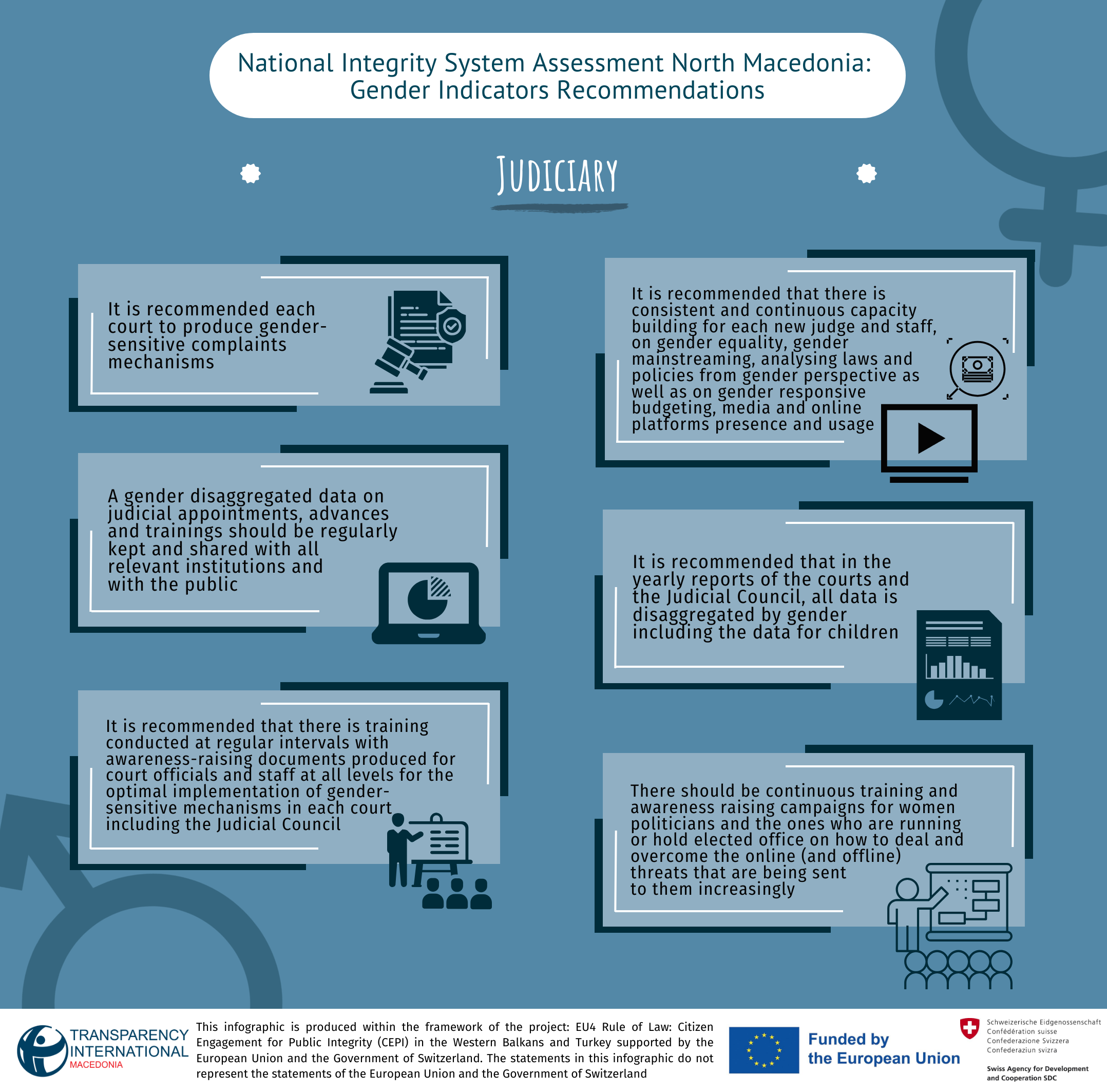At the beginning of 2024, Transparency International – Macedonia published the report: “National Integrity System Assessment North Macedonia”, which contains an analysis of the situation of the 15 pillars of the national integrity system in relation to corruption and the effectiveness of national efforts to deal with corruption.
The NIS Report was prepared during 2022 and 2023 within the project “EU4 Rule of Law: Citizen Engagement for Public Integrity (CEPI) in the Western Balkans and Turkey”, which was funded by the European Union and the Government of Switzerland.
Within this Report, for the first time, there is a gender sensitivity analysis with recommendations conducted for the 14 pillars which are very relevant for the country’s integrity system. The analysis was conducted according to a methodology prepared by Transparency International. Gender sensitivity was one of the indicators to analyze the work of the 14 out of 15 pillars on which overall assessment was conducted.
Judiciary mechanisms are not gender sensitive.
Score: 00/100
It is recommended that there is training conducted at regular intervals with awareness-raising documents produced for court officials and staff at all levels for the optimal implementation of gender-sensitive mechanisms in each court including the Judicial Council.
It is recommended that there is consistent and continuous capacity building for each new judge and staff, for both women and men, on gender equality, gender mainstreaming, analyzing laws and policies from gender perspective as well as on gender responsive budgeting, media and online platforms presence and usage.
It is recommended that in the yearly reports of the courts and the Judicial Council, all data is disaggregated by gender including the data for children.
Considering the rising online violence against women politicians and the ones who are running or hold elected office (at legislative, executive and judicial levels), there should be continuous training and awareness raising campaigns for women on how to deal and overcome the online (and offline) threats that are being sent to them increasingly.




